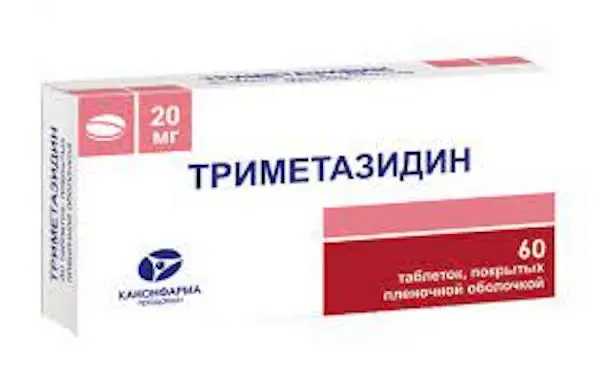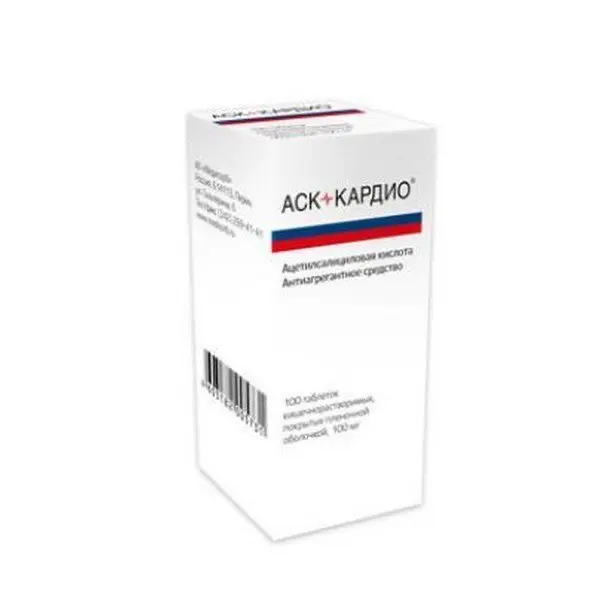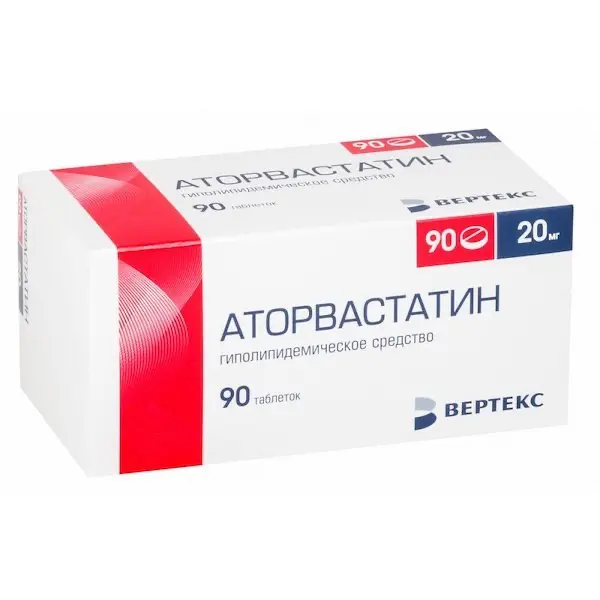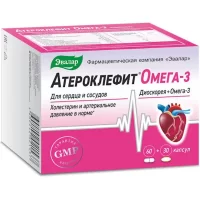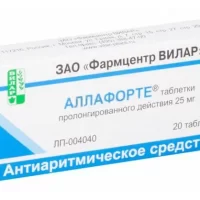Description
Trimetazidine Pharmacodynamics
It has an antihypoxic effect. Directly affecting cardiomyocytes and brain neurons, the drug optimizes their metabolism and function. Its cytoprotective effect is due to increased energy potential, activation of oxidative decarboxylation and rationalization of oxygen consumption (increase of glycolysis and blockade of fatty acid oxidation)
Trimetazidine inhibits fatty acid oxidation through the enzyme 3-ketoacyl-CoA-thiolase (3-CAT) myochondrial long-chain fatty acid isoform, which leads to increased glucose oxidation and accelerated glycolysis with glucose oxidation, which causes myocardial protection from ischemia. The switch of energy metabolism from fatty acid oxidation to glucose oxidation underlies the pharmacological properties of trimetazidine.
Trimetazidine maintains myocardial contractility, prevents a decrease in intracellular adenosine triphosphoric acid (ATP) and phoou:phocreatine. Under acidosis, it formalizes the functioning of membrane ion channels, prevents the accumulation of calcium and sodium ions in cardiomyocytes and normalizes the intracellular content of potassium ions.
Reduces intracellular acidosis and increased phosphate content caused by myocardial ischemia and reperfusion. Prevents the damaging effects of free radicals, maintains the integrity of cell membranes, prevents the activation of neutrophils in the ischemic zone, increases the duration of electrical potential, reduces the output of creatine phosphokinase (CPK) from cells and the severity of ischemic myocardial damage.
It has been experimentally confirmed that trimetazidine has the following properties:
– Supports energy metabolism of the heart and neurosensory tissues during ischemia;
– supports myocardial contractility, prevents intracellular depletion of ATP and creatine phosphate;
– Under acidosis, normalizes the functioning of membrane ion channels, prevents the accumulation of calcium and sodium ions in cardiomyocytes, and normalizes the intracellular content of potassium ions;
– Reduces the severity of intracellular acidosis and changes in transmembrane ion flow that occur during ischemia;
– Reduces the migration and infiltration of polynuclear neutrophils in ischemic and reperfused heart tissues;
– Prevents damaging effects of free radicals, maintains integrity of cell membranes, prevents activation of neutrophils in ischemic zone, increases duration of electric potential, decreases yield of creatine phosphakinase from cells and severity of ischemic myocardial damage;
– reduces the size of myocardial damage;
– has no direct effect on hemodynamic parameters.
In patients with angina pectoris trimetazidine:
– Increases coronary reserve, thereby delaying the onset of exercise-induced ischemia beginning on day 15 of therapy;
– limits exercise-induced blood pressure (BP) fluctuations without significant changes in heart rate;
– significantly reduces the frequency of angina attacks and the need for taking short-acting nitroglycerin;
– improves left ventricular contractile function in patients with coronary dysfunction.
The results of clinical trials have confirmed the efficacy and safety of trimetazidine in patients with stable angina pectoris, both in monotherapy and as part of combination therapy when the effect of other antianginal drugs is insufficient.
- Orally, with meals, taken whole, without chewing, with water. Trimetazidine is recommended to use 1 tablet (20 mg) 3 times a day. The daily dose is 40-60 mg.
- The course of treatment is as recommended by the physician.
- Patients with renal impairment Patients with moderate renal impairment (CKG 30-60 ml/min) should use Trimetazidine 1 tablet 2 times a day (morning and evening meal).
- Patients over 75 years of age
- Patients older than 75 years old may have increased exposure to trimetazidine, the dose of the drug should be adjusted with caution under close medical supervision.

